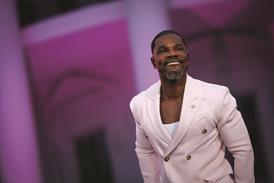
I’m cutting back my bassoon playing, I’m not going to speak Cantonese for the whole year to come, and I will diligently eat plenty of chocolate. As a non-musical chocolate lover who has never owned a bassoon and who only speaks English, I have a moderate chance of success. And I’ve decided to change my name to Popeye ? as in the Sailor Man.
Popeye could do most things, especially when he ate spinach. With his piston-like muscles and that versatile pipe (which could even propel him into space) he was a sailor-saviour, rescuing Olive Oyl, and occasionally the world, from all manner of calamities. But there was one thing that Popeye just could not do. He could not change. He even sang a lament about it, a serenade to sameness: ‘I yam what I yam, and that’s all I yam. I’m Popeye the Sailor Man.’
The reason for my new name? Simple. I’ve realised that I have largely stopped changing.
Nearly four decades of pastoral leadership has taught me this unpalatable truth: people rarely change. That includes Christians.
I know. That statement is the opposite of the Christian message, which is not just about a few minor behavioural amendments here and there, but the birth of a whole new species of humanity, as the newly created person in Christ, fuelled by the indwelling Spirit, becomes more Jesus-like, gradually, and ultimately, when eternity dawns. But the hard truth is this: too many of us have turned into old dogs who aren’t too keen on learning new tricks.
That’s not to say that we never did change. Conversion brings new values and therefore revised behaviour. As new Christians we hastily trawl through our lives, declaring war on the more obvious, lurid behaviours which we rightly judge as being incompatible with Christian discipleship. But having tamed the bigger beasts, we settle down and wait for the sound of a trumpet, when everything will be changed in a moment.
What was fluid turns solid. Fresh turns stale. We get weary of the call to endless revising; the preacher’s shrill challenge for yet more amendment and deeper commitment wears us out. Some of us live secretly, bound in chains of addiction, advertising freedom while we languish in the cell block.
But even though this is not how we are called to live, the hows and whys of change are difficult to quantify. As a preacher, I so desperately want to offer seven sure-fire steps to transformation, preferably beginning with the same letter. This much I know: change begins with renewed thinking. It’s not just about scrubbing up on the outside.
Scripture views change as something positive: we tend to fuss about what we’re not, rather than dream about who we’re becoming. But we are being ‘transformed…from to glory to glory’ (2 Corinthians 3:18), says Paul, who himself experienced personal revolution. We tend to focus on pruning; the Spirit is about producing rich, luscious fruit. And, of course, change results from the supernatural, inner work of the Spirit in us: true change is a sign and a wonder.
As 2014 looms, let’s know that change is not only possible but, if we will follow Jesus by faith today, it is inevitable. Perhaps that truth will allow us to swing a sledgehammer at the hopelessness that can stop us in our tracks and, as we do, see a crack appear in the solid mould of what we are.
We can change, and so maybe I shouldn’t change my name after all. Popeye Lucas just sounds so wrong.




























